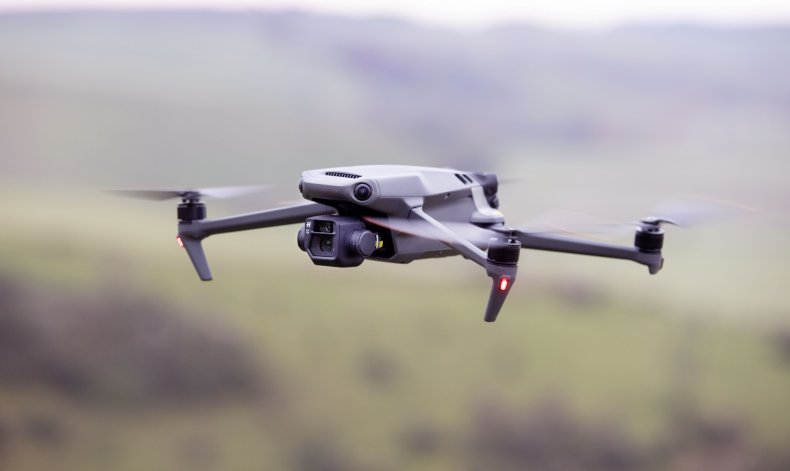Five Chinese Companies Have Suspended Business in Russia
The number of Chinese companies that have suspended operations in the Russian market has now reached five, following drone maker DJI’s decision to halt business activities in Russia and Ukraine this week.
DJI’s civilian drones are used by both Russian and Ukrainian forces in their ongoing conflict, aiding operations ranging from general battlefield surveillance to precise artillery targeting. The company, headquartered in Shenzhen, had previously expressed its opposition to the use of its products for military purposes, but said it was unable to deactivate individual devices in the field.
“DJI is internally reassessing compliance requirements in various jurisdictions. Pending the current review, DJI will temporarily suspend all business activities in Russia and Ukraine,” the popular drone company said on its website on Monday.
In March, Mykhailo Federov, Ukraine’s digital minister, called on DJI to stop selling its drones in Russia, whose soldiers he said were using the devices “to navigate their missile to kill civilians.”

Chris Gorman/Getty Images
Last week, the firm, which has a large footprint in Europe and North America, said it would “never accept any use of our products to cause harm.” Its business partners have committed “not to sell DJI products to customers who clearly plan to use them for military purposes,” it said. “They understand we will terminate our business relationship with them if they cannot adhere to this commitment.”
According to a list compiled by experts at the Yale School of Management, more than 750 companies have curtailed operations in Russia since Vladimir Putin ordered the invasion of Ukraine nine weeks ago. The research team, led by Jeffrey Sonnenfeld, sorts businesses into five categories, from those that are still “digging in,” to others that have completely withdrawn from Russia.
No Chinese businesses on the list have pulled out of the Russian market since February 24. In fact, the majority have stayed and some plan to expand. Among the biggest are household names like Alibaba and tech companies Tencent and Xiaomi.
Recently, UnionPay, China’s largest credit card brand, decided against expanding its presence in Russia, despite the vacuum left by the exit of America’s Visa and Mastercard. UnionPay appears to be wary of potentially debilitating secondary sanctions by the West, a prospect that makes Russia less palatable compared to U.S. or European market access.
Also “buying time,” according to the Yale team, is Chinese phone maker Huawei, which has suspended new orders but, like UnionPay, is continuing its existing operations in Russia.
When it comes to Chinese companies on Yale’s list, the fear of secondary sanctions is a significant consideration. Besides DJI, all four remaining companies to halt operations in Russia are banks with affiliations to the state: the Asian Infrastructure Investment Bank, the Bank of China, the Industrial and Commercial Bank of China, and the Shanghai-headquartered BRICS Development Bank.
China’s state-owned oil and gas enterprise Sinopec is the only major company on the list to scale back its operations in the country, suspending a $500 million new investment last month in a move that also signaled uncertainty over possible sanctions from the U.S. and other powerful trading partners.
Beijing has remained outwardly neutral on the conflict in Europe, but it has offered Moscow considerable political support by failing to condemn its invasion and voting with the Russian delegation at the United Nations. China’s official rhetoric and propaganda both lean heavily in the Kremlin’s favor.
U.S. officials including Secretary of State Antony Blinken see China’s posture as “practically supportive of Russia.” However, as Yale’s list shows, Washington has seen no sign of the Chinese government going any further in a material way. In fact, the opposite is true—some of China’s biggest banks are not keen to be seen as financially assisting Russia’s war effort.
“President Biden made directly clear to President Xi Jinping that it would not be in China’s interest to materially support Russia in this aggression, or for that matter undermine sanctions. This is something we’re looking at very, very carefully,” Blinken told the Senate Foreign Relations Committee on Monday.
Unlike companies in the West, Chinese firms are unlikely to face the same public scrutiny experienced by their American or European counterparts, hundreds of which pulled out of Russia on public sentiment alone. Therefore, as the only major private company to suspend business in Russia, DJI’s decision would likely have been linked to its extensive operations in Western markets.
DJI didn’t return Newsweek‘s request for comment before publication.
